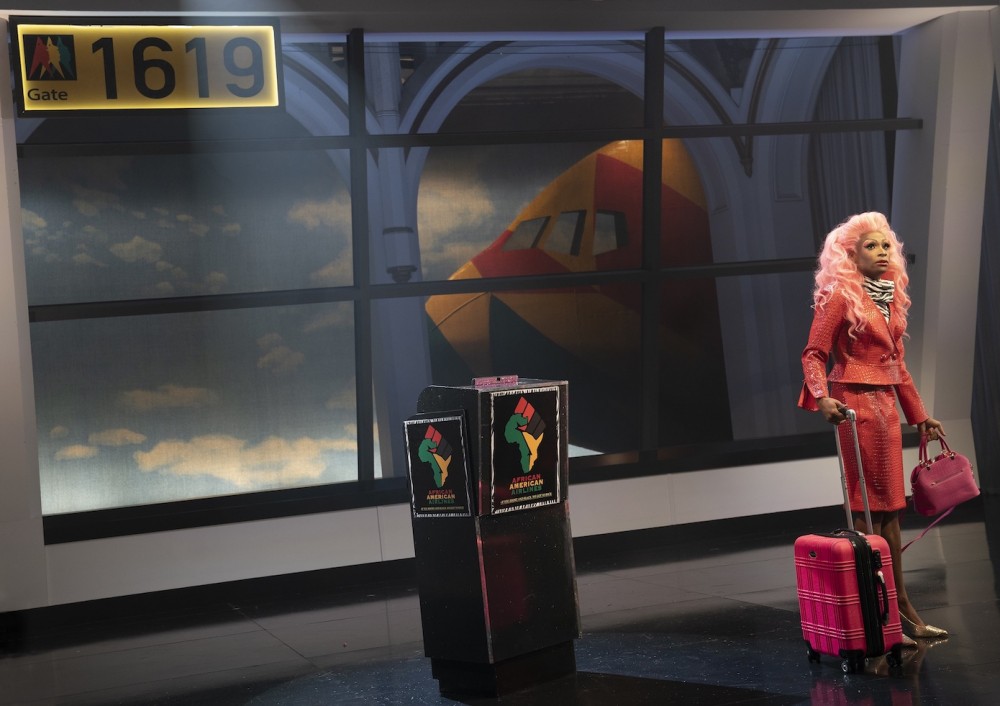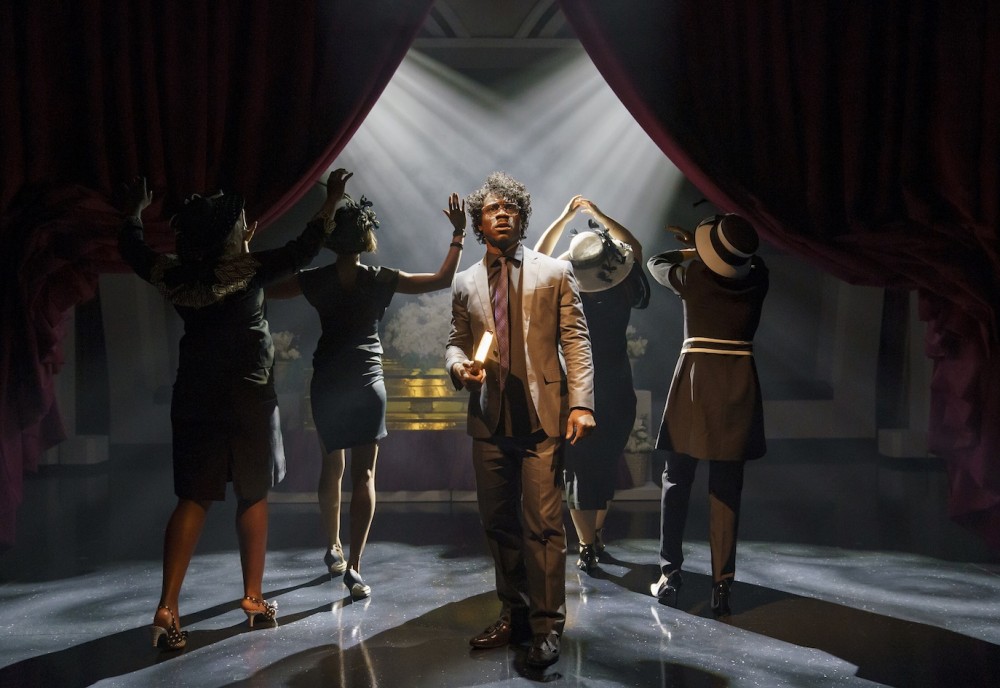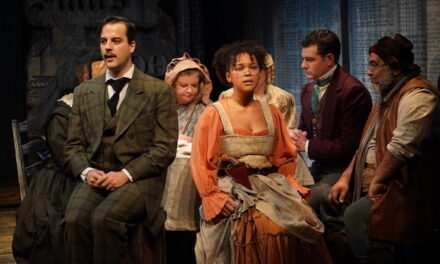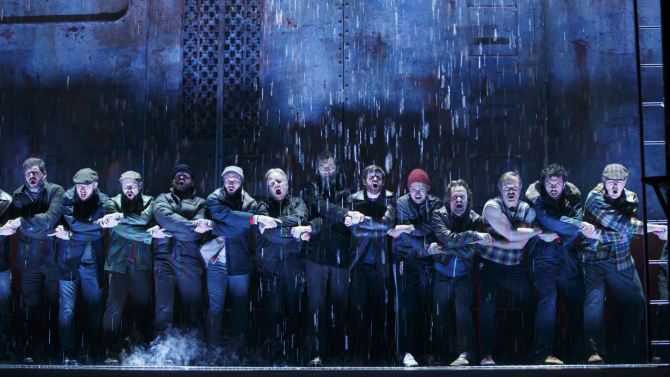
by Carol Rocamora
Everything about Peaches is shocking—from the pink color of her big hair to her shiny pink alligator suit to the stream of profanities that spew from her mouth. But nothing shocks more than her offer: a seat on the last flight back to Africa for any remaining black American who’s lucky enough to get one.
Such is the audacious premise of Ain’t No Mo’, Jordan Cooper’s sensational new satire now stirring up a storm at the Public Theater. It’s being offered by Peaches, the play’s formidable narrator, Master of Ceremonies and satirist-in chief. She presides over the check-in counter of African-American Airlines for flight #1619, and she means business, to put it mildly. (Spoiler alert: she’s played by the author himself.)
In this flight of fantasy, the US government has offered a free ticket back to Africa for all those African-Americans descended from slaves. (“If you stay here,” Peaches warns, “you only got two choices for guaranteed housing, and that’s either a cell or a coffin.”) Most blacks have left America already, and Peaches is running a lottery for the coveted places on the last plane. “There will be no first class! No ‘Negro plus!’” she warns.


These warnings are interspersed with a series of wildly flamboyant vignettes, in the style of George C. Wolfe’s 1984 play The Colored Museum. Each vignette lampoons a contemporary African-American stereotype in a style that’s alternatingly hilarious and outrageous. Take for example, the opening scene: a funeral, presided over by a black minister, of “Brother Righttocomplain,” who died on the night President Obama was elected. “Ain’t no mo’ tears to be shed/No mo’ marches to be led,” the preacher declares, adding other epithets that are unprintable here.
Then there’s a scene featuring actresses auditioning for black stereotypical roles like “bitches” and “hos.” One of the actresses, a white woman named Rachel, is “transitioning to black” and wants to be called “Rachanda.” (She was inspired by Michelle Obama’s recent autobiography.) There’s also a dinner scene featuring an upper-class, assimilated African-American family, where a black slave suddenly bursts out from under their elegant dining table. She’s been chained in the basement, and has broken loose. “You can kill me but I will never die!” she proclaims to the horrified family.
And it goes, through a razor-sharp series of satirical scenes about the post-Obama black identity crisis in America. Cooper is writing about an ailing culture that the Obama dream hasn’t cured yet, tragically. The play dares to pose provocative questions to audience members, black and white alike: “What is everyone searching for?” Will they find it at the final destination of flight 1619? “Are you willing to throw away our family heritage for a fantasy?” asks one African-American character, speaking of the notion of returning to one’s African roots.


In the final scene, Peaches awaits to board that last flight, piloted by none other than Obama himself. But she panics. “Where’s my stuff?” She can’t find her travel bag, containing the African-American cultural history amassed since the first slave arrived in 1619 (hence the flight number). “Barack! . . . Hold the plane!” she cries.
Stevie Walker-Webb directs a splendid cast playing multiple roles (Fedna Jacquet, Marchant Davis, Simone Recasner, Ebony Marshall-Oliver, Crystal Lucas-Perry). Leading the cast is the remarkable Jordan E. Cooper, a stunningly talented young playwright/performer who dares to take us on this trip. Kimie Nishikawa’s clever set and Montana Levi Blanco’s splashy costumes provide the perfect context for this fantastical flight.
“Once your ticket has been scanned, do not look back!” Peaches instructs. Ain’t No Mo’ follows a string of satires about race, slavery, and identity that are flooding the stage recently—including Brendan Jacobs-Jenkins’s Octoroon and Jeremy O. Harris’s Slave Play. They’re all looking back—trying to find a way to move forward.
Ain’t No Mo’. Through May 5 at the Public Theater (425 Lafayette Street, at Astor Place). www.publictheater.org
Photos: Joan Marcus






















